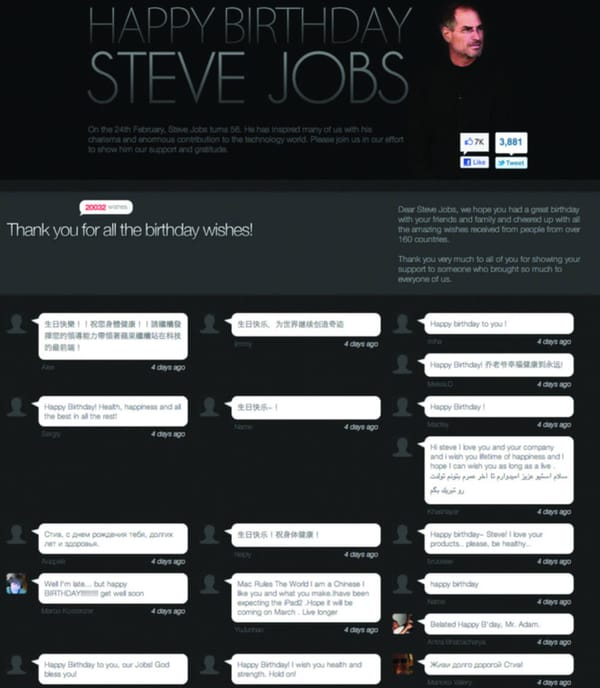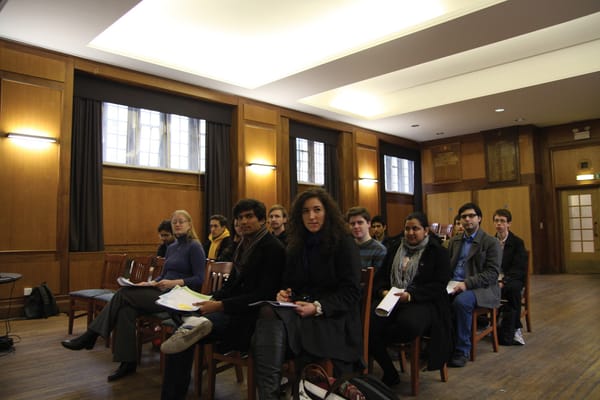£6,800 well spent?
Why did a seemingly simple assignment cost so much? There’s more to it than meets the eye says Haralambos Dayantis

In March 2010, the Physics department spent £6,800 outsourcing a software contract to an ex-member of staff, to enable students to choose their 3rd year options online.
At first glance, this may look like rather a suspect arrangement; why was the Faculty awarding a contract, to the value of 2 years’ tuition fees for a home student, to an ex-employee? Moreover, why did a seemingly simple assignment cost quite so much? Any third year Physics student will know that there were numerous problems with the forms, where Derryck Stewart, Data Manager, had to manually amend many students’ options.
Angus MacKinnon, Director of Undergraduate Studies in Physics, leads the Teaching Committee who made the decision to outsource this work. He says that before the online system, “the office staff had to check each submitted form carefully to make sure the choices conformed to the rules, whereas it should be relatively easy to build these rules into a computer based procedure. We therefore chose this as the project we would put to Lighthouse.”
“Lighthouse London” is a web development group run by Tom Johnson, who used to work at Imperial. He took voluntary redundancy in late 2009, leaving the role of Multimedia Manager for Natural Sciences vacant. Since Tom had knowledge of Imperial’s systems, it was seen as pragmatic to employ his company. For example, integrating the system with Imperial’s central login server would be far easier for him than for another external contractor. The decision not to put the contract out to tender was not technically improper, since Imperial’s rules dictate that only contracts of £10,000 or more must be tendered.
As to the cost of the development, there are many factors that one must take into account. Lighthouse were only given about two weeks in which to write and test the software, a very demanding deadline. The program is also much more flexible and complex than is immediately obvious. John Conway, Learning Technologist for Physical Sciences, demonstrated the back end of the system to Felix, and showed how seamlessly it integrates with the Imperial system. The system is not merely an interface, but a fully functioning database, which takes into account such factors as maximum student numbers per course.
The software’s flexibility is such that it was able to be adapted for use by the Chemistry department, who paid a portion of the fee. Moreover, parameters can be changed without having to go into the source code. This means that in future, it could be used for allocating such things as research placements and lab projects.
As for the errors with the software, they stemmed from the conflict between the desire to allow students to change their options, and the need to keep student numbers below lecture theatre safety limits. Solutions to the problem are still being implemented, and Angus MacKinnon feels “confident that all this will be ironed out before we have to go live again after the Easter break.”
Meanwhile, Lighthouse have been working with Imperial staff to improve the software, something one would never expect from a private firm without taking further fees. Moreover, the source code belongs to the Faculty of Natural Sciences and when all of the issues have been resolved, the Faculty will be able to charge other departments, even other universities, for use of the software.
John Conway believes that far from being an overpriced solution, the options forms were actually a fantastic investment for the department, which might even turn a profit in the long run if they are able to sell it too. Additionally, he feels the selection of Lighthouse for the project was perfectly legitimate, and indeed astute. Whilst Derryck Stewart did need to amend some students’ options, this still took less time than would have been spent on assigning the options manually in the first place. By the next options cycle, the software ought to be the efficient, labour-saving program that was always intended.








